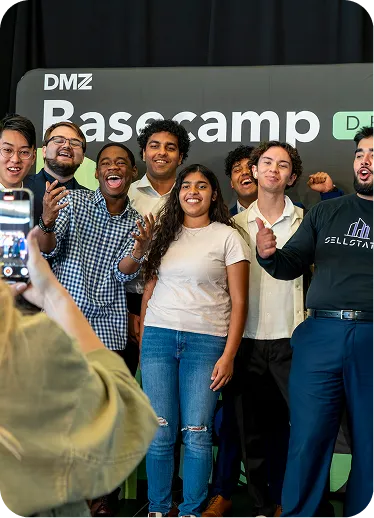Wattpad co-founder Allen Lau has created a million-dollar empire out of building engaging (and hardworking) communities. As a result, it means he understands just how pivotal they can be for a startup's success.
These days his company is more than just a free story-sharing app based in Toronto. In fact, it's now one of Canada's most successful tech companies and raised USD $117.8 million from prominent backers like China's billion-dollar Tencent Holdings, OMERS Ventures and BDC.
Part of the company's rapid success lies in its ability to create a thriving workplace culture. An important feat in today's ever-changing tech world where tech talent is in high demand.
In fact, Wattpad's dedication to culture is a smart business move considering happy and "engaged" employees make better workers. A study from Warwick University found happy employees worked harder and were 12 per cent more productive, while a 2017 Gallup report discovered stressful work environments produced higher employee turnover and absenteeism.
"Culture is the most important part of a company," explains Lau. "It's the glue that holds a company together. Creating a supportive environment that allows everyone to thrive and do world-class work."
How Allen Lau and his team create a thriving community:
- Spend time with your employees: Wattpad management regularly meet with employees for one-on-one for feedback.
- Create collaboration: A no-door policy and open space layout help employees work and collaborate more.
- Keep communication open 24/7: Employees feel empowered to share ideas, thoughts and opinions, no matter their position, through shared internal platforms.
There are all kinds of communities
Of course, building a successful company goes beyond just investing in an amazing workplace culture. Community outreach plays an essential, yet sometimes overlooked part, explains Erin Bury, managing director for communications agency Eighty-Eight. Community outreach, she says, has the power to turn people into brand advocates and boost brand recognition.
"Building community outreach does not require a budget just time and authenticity," the communication expert says. "Startups just need to identify what those communities are [that they want to help] and how they can help." That can be something as simple as entrepreneurs volunteering their product or skills.
For example, Bury's firm works pro bono for a Toronto-based charity called the Upside Foundation. Through its community work, the company works closely with some of Canada's best tech startups all while making a difference.
Maya Shoucair, Shopify's community development manager for Toronto, understands how beneficial working with the community can be as well. The Torontonian has built a career out of helping companies grow and strengthen their local community. She is an integral part of Shopify team that helps solidify the company's reputation as an important part of the tech ecosystem. Her advice for companies hoping to mimic Shopify's success? When engaging with communities outside of your office make sure employees share the same goals. "Making sure everyone understands what problems you're trying to solve. And also how you intend to bring your mission to life is crucial. Sometimes, this means over-communicating, so that everyone is on the same page."
Shopify Community Manager Maya Shoucair shares three things startups should know:
- Give, don't just take: Never take more than you give when working in the community. It should always be a mutually beneficial relationship.
- Be inclusive: Don't create inaccessible spaces that don't feel welcoming or open to different voices.
- Share the wealth: Help employees take the lead on initiatives.
Don't expect results overnight
Healthy Pets' founder Emma Harris has seen firsthand how community outreach can uplift emerging businesses. Despite only launching in 2017 her company has grown exponentially since joining Toronto's tech community.
One recent success includes last week's appearance on Dragons' Den. The TV role garnered a $500K deal from Arlene Dickinson, but what the episode didn't capture was how volunteering and attending community events was a crucial part of the company's journey.
"Always raise the amount of money [you need] to support your growth, but you have to get out there and go to events or volunteer to truly impact your business," she says. "I believe prioritizing community events is worth the cost."
Dragons' Den alum Emma Harris' advice for community outreach:
- Only attend or volunteer at one event per night: Instead of attending a few events every night for an hour or two, make an impact by choosing one and creating deeper relationships with people around you, so you stand out.
- Rotate the type of events you attend: Attend a variety of meetups -- an investment event one night, a sales-focused meetup the next to get as much as possible out of the city's offerings.
- Go in small groups or even alone: Attending or volunteering at an event by yourself forces you to meet as many people as you can and makes it less intimidating when you approach new people.
While community work helped Emma find new opportunities and grow in less than a year, not every founder can count on the same experience.
Shoucair suggests founders or companies dipping their toe into community outreach start small like Harris did. Attend events or volunteer at a manageable capacity to create real impact and change.
"Anyone looking to strengthen their community, whether they are in a community development position or not, is to never focus on growing as fast as possible at the start," she says. "Your community will grow and strengthen organically if you're able to provide the right value and direction."


.webp)



